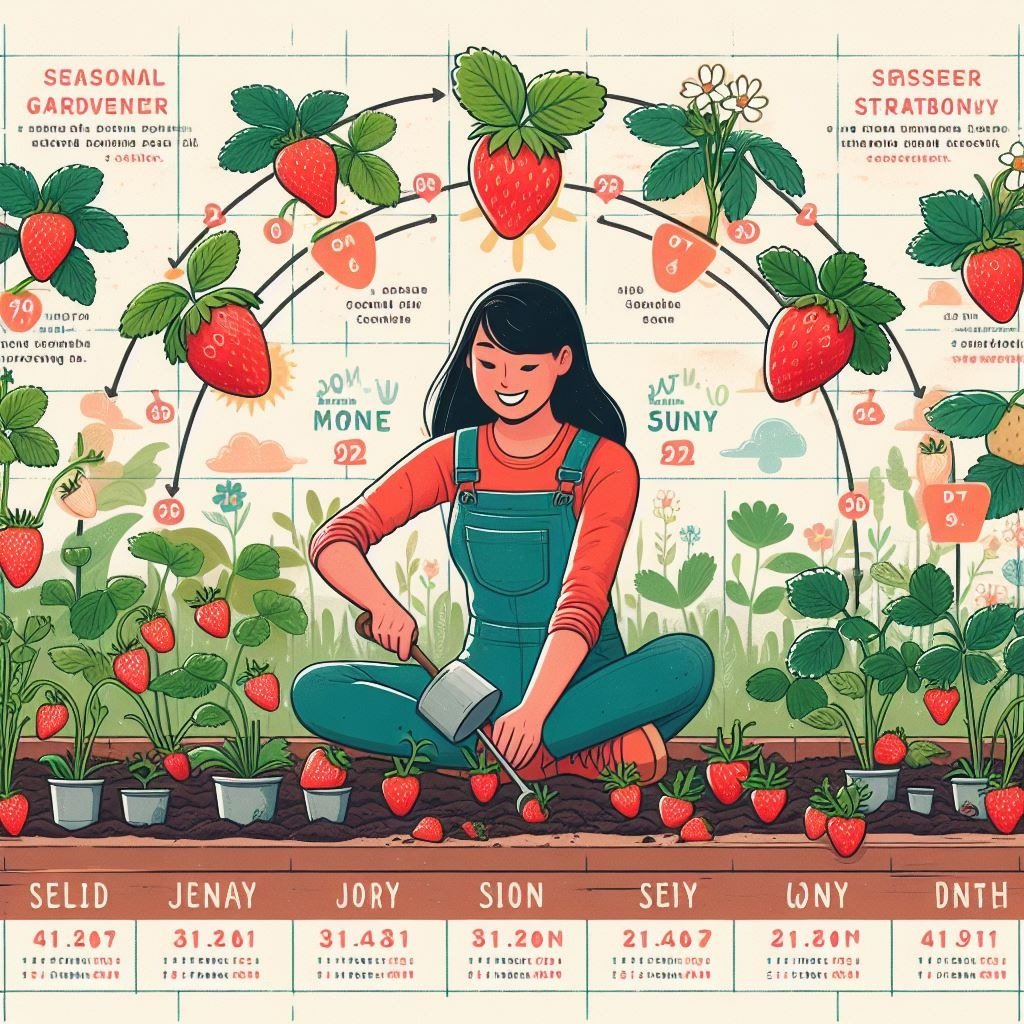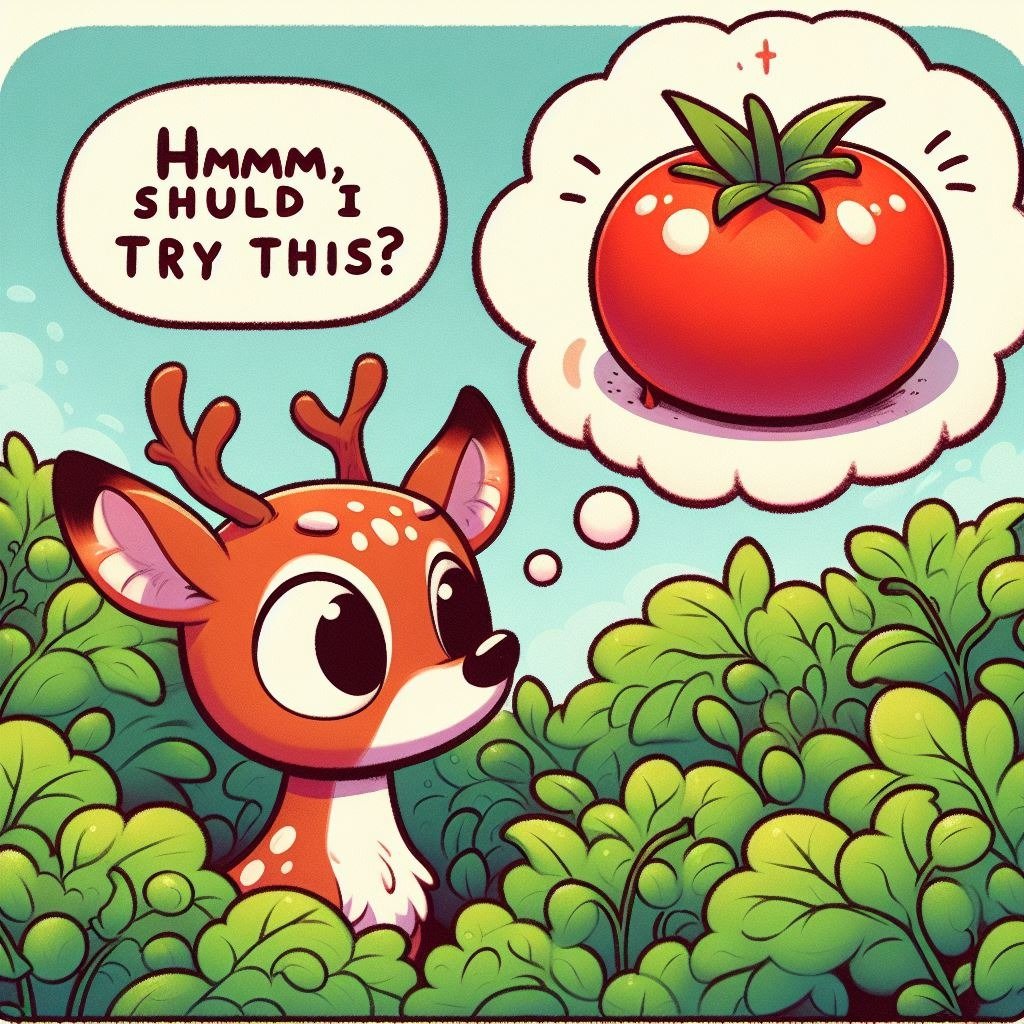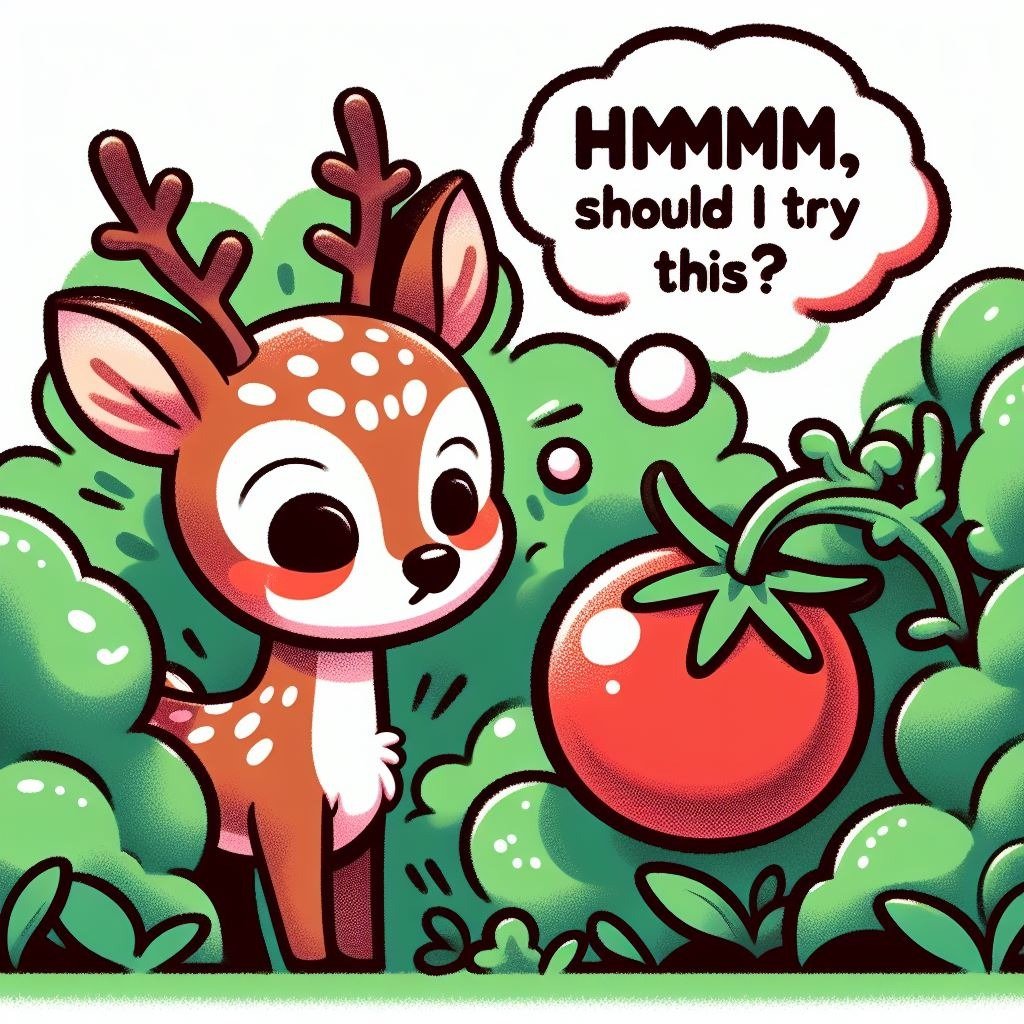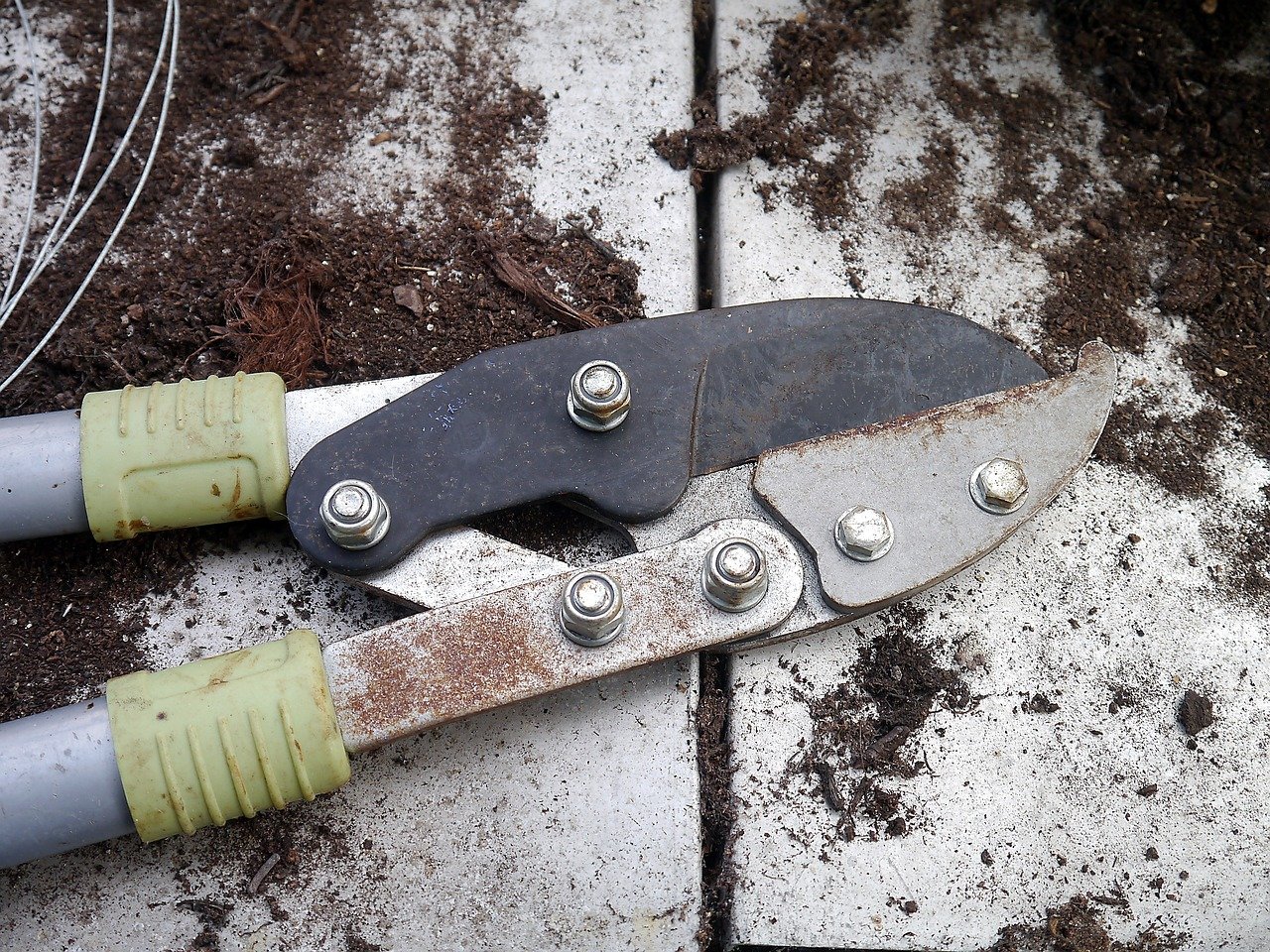
Timing is everything. When to plant strawberries for a great harvesting season is what you should worry about
When to plant strawberries In this book called “The Plot Hero’s Guide,” you are going to learn about the strategic

Nothing is more dismaying for gardeners and vegetable lovers than noticing that your well-groomed plants are gone at dawn, hence the favorite food of the wildlife. Jumping out of bed from such strange dreams with a dead heart and head, what horror might be at the core? Deer. This category may seem peaceful and pretty to see from afar, but the thing is, they can be dangerous, thirsty weeds for fruit and vegetable gardens if not controlled properly. One of the burning questions on many green thumbs minds is: do deer eat tomato plants? While the answer is certainly yes, it is not the ideal case. The tomato plants are not genetically resistant to the overzeal and rapid feeding habits of these four-footed pests.
Deer as an explanation for damage to tomatoes must be probed and analyzed from the perspective of their dietary ways. The deer is included among the ruminant herbivores as they primarily browse on bark and grass. They have a stomach with more than one compartment. They produce a kind of liquid from their complex digestive system for extracting nutrients from tough and fibrous foods. Their diet is usually composed of grasses, leaves, twigs, and other vegetables, and they give more to the fresh, soft plants.
The issue is with the increase in tomato prices. The juiciest leaves stems, and fruits, which constitute the main food seasonings for the tomato plants, can be a nuisance due to deer turning to them as an indispensable provision. Right from early spring, when the first buds are seen on the soil, the game bois are up and about, hunting and pillaging the new growth. These plants, being the primary goal of the herbivores, start parting with their fruits as they reach maturity, and thus the insects prefer to feast on the ripe and succulent tomatoes.
So, do deer eat tomato plants, how are they protected, and what is the plan for that year’s harvest? It is a clear-cut answer that will cause a disaster. And there is no doubt that gardeners will be one of those victims. One deer can rip a tomato bushel with all the branches and the floral buds in one hour, so there will be no greens and a couple of bare stems. Then again, where one deer is on the trail, more often than not, these felines stay in packs or family units when they hunt.
Burning down the plants is the least of their concerns, as their deaths do not signify the end of it. Besides, deer can walk and flatten the soil in a vegetable fence, and because it is packed, it can be difficult to establish plants at later times. The next problem is the type of land animals that perform erratic movements that might damage irrigation systems and other gardening infrastructure. This may also lead to frustration for growers.
Confronted by the bitter truth that deer bite tomato crops, gardeners need to address the issue more positively by taking measures that prevent deer from damaging their plants. One of the strongest defense systems is putting up a robust fence all through the farm. With their ability to jump being excellent, the deer fence shall be at least 8 feet tall, with its bottom rods making strong ground anchorage to prevent the animals from leaping over the fence or pushing away and pushing through.
Those preferring natural ways still have effective and eco-friendly alternatives to repel birds. Planting scented herbs like lavender, rosemary, or garlic around the mainland of the garden can mask the coming smell that happens to tomato plants. As well, this can be done by hanging bars of soap or bags of human hair on plants that resemble certain predators; on the other side, deer will stay away and not notice them.
To take care, for instance, of the cases in which deer are close to gardens and make an invasion, the gardeners can make use of commercial deer repellents, which typically contain foul-smelling or taste-deterring substances that make plants revolt against deer. It is important to pay attention to this and treat them accordingly during wet periods or heavy dew to maximize their efficiency.
Deer can be a substantial bother to the farmers whose fields are infested with tomatoes. Yet, deer are no less an important part of the environment, as the animals are one of the key players that help to keep the balance of nature. For the problem of preventing deer from being killed in the whole area, the more idealistic way is to find a way for people and deer to live together peacefully.
An alternative approach includes planting varieties of tomatoes that are more deer-resistant, including cherry, or that have more hairy, intimidating leaves. Another more invisible yet important method would be to plant trap crops, e.g., clover, and other categories of deer’s favorite foods on the outer edge of the vegetable garden to simply divert the animals away from the sweet spot where the tomatoes usually grow.

Taken altogether, do deer eat tomato plants? The answer is indeed an abundant yes. Amongst all the amazing herbivores, the representation of the elegant grasshoppers is quite extensive; they seem to find the leaves, stems, and fruits of tomato plants the most savory of all, and their huge appetite can destroy an entire farm in the blink of an eye. Nevertheless, rewarding prevention measures like fencing, deterrents, and wise planting choices can help gardeners protect tomatoes from these predators and allow them to harvest bumper crops year after year.
Oh yes, deer will even enjoy eating every juicy part of your tomato plants in all stages of their growth, from when they are only seedlings to when they have finally reached fruit-bearing. You just have to reach out and feel the tender buds, which are so mouth-watering.
Hanging fur stops around the periphery of the garden by peacocks may decoy deer by assuming they are beasts of prey and avoid the place. The other way, nevertheless, is not effective for all deer needles, and indeed, it should be replaced frequently as it fades away the smell.

When to plant strawberries In this book called “The Plot Hero’s Guide,” you are going to learn about the strategic

Best Pruner Anyone who enjoys maintaining a lovely garden knows you should choose the best pruners. Pruners are some of